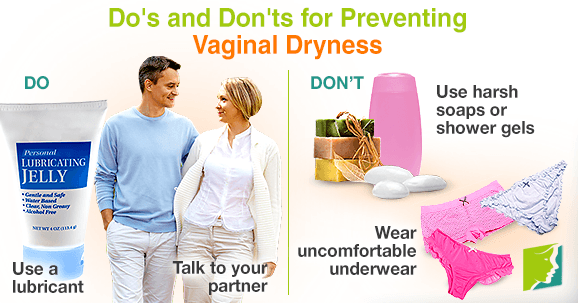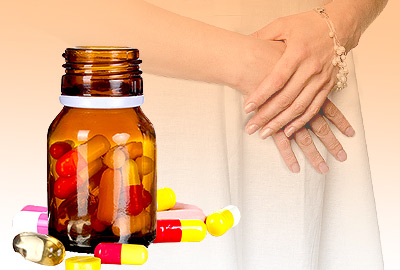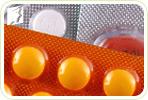Many menopausal women experience uncomfortable vaginal dryness during this significant transition. It is a common symptom, where an imbalance of hormones means less estrogen flows to the vagina, resulting in less natural lubrication, and a feeling of dryness. As well as being uncomfortable, vaginal dryness can also interfere with intercourse, and often goes hand in hand with other menopause symptoms, like loss of libido. This can damage a woman's self-esteem, and cause problems with her partner. Luckily, there are ways to approach this delicate issue, and resolve it.
Don't
Feel embarrassed
A 2012 survey indicated that 85% of women experienced increase in pain during sexual intercourse. Vaginal dryness is a common symptom, and there are ways to treat it, so you shouldn't feel embarrassed about it.
Do
Talk to your partner
In a 2012 survey, more than 70% of women said their relationships had suffered because of symptoms affecting their sex lives. Open communication with your partner will help them understand your point of view and decrease the likelihood of your relationship suffering as a result of your symptoms.
Don't
Use harsh soaps or shower gels
Soaps, fragrance shower gels, and bath oils can often irritate the vaginal area further. For intimate washing, either use a soap-free cleanser, or just simply wash with lukewarm water.
Do
Use a lubricant
During intercourse, using lubricant will make sex feel more comfortable for you and your partner. You should also ensure that you are fully aroused before your partner attempts penetration, to lower the risk of discomfort.
Don't
Wear uncomfortable underwear
Synthetic fabrics can often aggravate the condition, so it's best to stick to gentle fabrics that allow proper air flow into the area (e.g., cotton), and wear comfortable styles of underwear rather than thongs, and G-strings, which pull the fabric close to your skin.
Do
Exercise
As well as having a positive impact on your general health and well-being, studies have shown that exercise (particularly running, cycling, and swimming) can help lower a woman's susceptibility to vaginal dryness.
Talk to your doctor
He or she can prescribe an estrogen cream, which is applied to the vagina to boost the natural flow of estrogen and increase lubrication. Alternatively, estrogen tablets, which have the same effect, can be inserted into the vagina with a disposable applicator (until the dryness improves); or you could also try using an estrogen ring, which your doctor can insert to release estrogen directly to the vagina. It is up to you to decide which option you find most suitable.
These lifestyle changes will not only address your symptoms, but contribute towards your overall well-being and good health. Although it is a delicate issue, it is important to address vaginal dryness to avoid it affecting your personal comfort, your self-esteem, and the relationship between you and your partner.
Sources
- National Health Service. (2014). Sex after the menopause. Retrieved from http://www.nhs.uk/livewell/women4060/pages/sex-after-the-menopause.aspx




